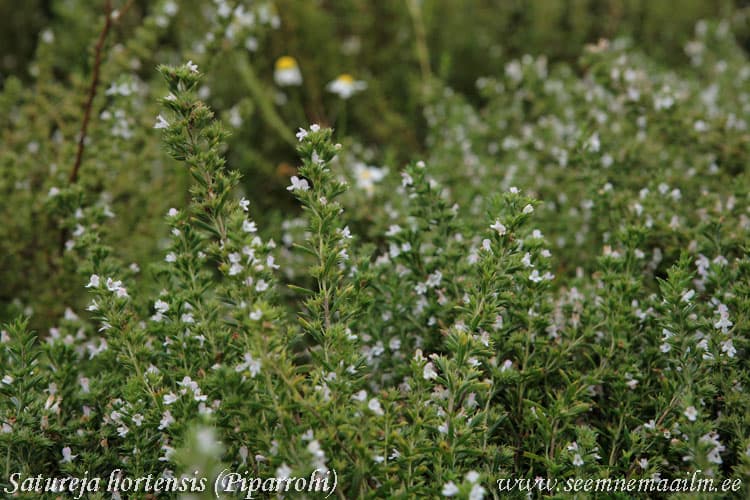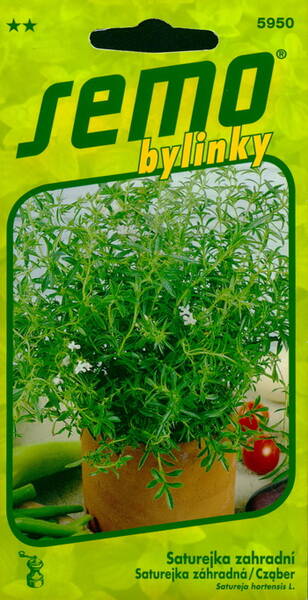Strong peppery flavour!
Savory is increasingly grown in cottages and vegetable gardens. This is an annual seasoning plant, which is very common in Asia and the Caucasus. It is also known as "pepper grass", which is an excellent seasoning for soups and salads with a burning taste of pepper, actively used for making marinades and pickles, as it has bactericidal properties.
Savory is used to stimulating appetite, for gastrointestinal diseases and as a diuretic.
The plant is light and heat-loving, demanding soil fertility. For drying, the savoury is harvested at the beginning of flowering.
Attention: the aroma intensifies when the above-ground part of the plant is dried.
Growing conditions.
Sow directly into the ground after frost. Seeds are planted to a depth of 0.5-1.0 cm and slightly rolled. At a temperature of + 15 + 20 ° C, shoots appear on the 8-10th day. The culture is warm and photophilous, placed on loamy and sandy soils.
Sowing: April (3) - May (2.3).
Harvest: July-September.
1.0 g = 1300-1500 seeds.

A hardy annual with lilac tubular flowers which bloom from July to September, it grows to 30-60 cm in height. With slender bronze-green leaves.
Companion Plant: Grown near or next to Broad beans it is reputed to help repel black fly.
Gather some Savoury when harvesting the pods and cook together - it does wonders for the flavour. The secret is to have your Summer Savoury 15 cm tall by early May to plant out amongst the beans.
Sowing Instructions: Sow from late winter to spring 1.5 mm deep in good seed compost.
Germination usually takes 14-21 days +18+20°C.
Growing Instructions: Transplant when large enough to handle into 7.5 cm pots. Later harden off and plant out 38 cm apart into ordinary well-drained soil in full sun.
Aftercare Instructions: Pick the leaves as required and for dried herbs, August is the best month.
Kitchen Notes: Finely chopped and mixed with melted butter, it is magnificent poured over freshly gathered and lightly cooked broad beans, or used with breadcrumbs to coat fish, added to soups and stews it is magnificent.















